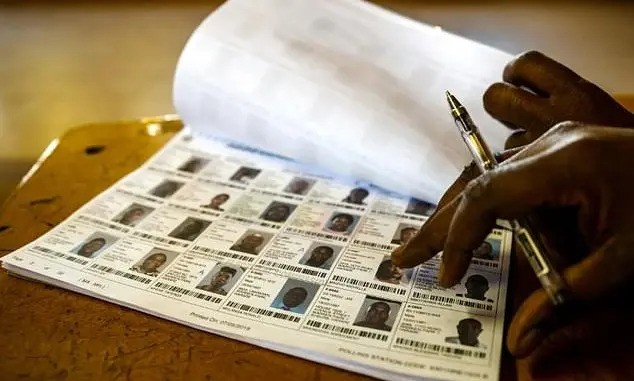
The President has not yet published a proclamation in terms of section 144 of the Constitution fixing the dates of the general election due to be held later this year, so the dates are still uncertain.
In this bulletin we shall set out the periods within which the various stages of the election – nomination of candidates, voting and announcement of results – must take place to comply with the Constitution and the Electoral Act. Setting out these periods is not as easy as it might otherwise be because the latest delimitation of constituencies and wards is being challenged in the Constitutional Court and the Court’s decision will affect the dates of the election, as we shall explain later.
Constitutional Time-limits for Polling Day in General Elections
Under section 158(1)(a) of the Constitution polling in a general election – i.e. an election to both Houses of Parliament and all provincial and metropolitan councils and local authorities – must take place not more than 30 days (i.e. one month) before the end of Parliament’s five-year term, which runs from the date the President-elect was sworn in after the last general election.
President Mnangagwa was sworn in for his current term on the 26th August 2018, so Parliament’s five-year term will end five years later, on the 26th August 2023. Polling day in the 2023 general election must be not more than 30 days before that, i.e. no earlier than the 27th July 2023.
Hence polling day in this year’s general election must be between the 27th July and the 26th August.
Statutory Time-limits for Other Electoral Processes
The Electoral Act sets out time-limits for other processes in general elections, such as nomination of candidates and run-off elections (in the case of presidential elections).
According to sections 38 of the Act, a presidential proclamation calling an election must specify the following dates:
- Nomination day for candidates, which must be between 14 and 21 days after the proclamation
- Polling day, which must be between 30 and 63 days after nomination day
- Polling day for a run-off presidential election, if a run-off becomes necessary after no candidate in the original election received a plurality of the votes. A run-off election must be held between 28 and 42 days after polling day in the original election.
From these time-limits, we can calculate that the President must publish his election proclamation between 44 and 84 days before polling day in the general election.
Delimitation and the Election
As we indicated earlier, the calculation of election dates has been complicated by a challenge in the Constitutional Court against the latest delimitation of electoral boundaries conducted by the Zimbabwe Electoral Commission [ZEC].
Mr Douglas Mwonzora, leader of the MDC-A party, has applied to the Constitutional Court for an order setting aside the delimitation report prepared by ZEC and published on the 20th February this year. He is also asking the Court to postpone the elections until ZEC has conducted a fresh delimitation. The Court will be hearing the application today and there is a good chance it will grant Mr Mwonzora at least part of what he is asking for because the delimitation was a thoroughly botched job: see Election Watches 2/2023 of the 9th January 2023 [link] and 7/2023 of the 22nd February 2023 [link]. Whether the Court will order a postponement of the elections is doubtful because there is nothing in the Constitution or the Electoral Act expressly giving the Court power to make such an order.
The reason why the Court’s decision is important for the date of the forthcoming general election lies in section 161(2) of the Constitution, which states that if a delimitation of electoral boundaries is completed less than six months before an election, the newly-delimited boundaries will not apply to the election. Hence:
- If the Court decides that the recent delimitation, despite its faults, is constitutionally valid then the newly-delimited boundaries will apply to the general election so long as it is held six months or more after the delimitation report was published. The report was published in Proclamation 1 of 2023 [link] on the 20th February 2023, so if the delimitation is to apply then the general election must be held after the 20th August.
- If, on the other hand, the Court sets aside the delimitation then there will be no time for ZEC to complete a new delimitation before the election. In that event the election will have to be held on the basis of the old electoral boundaries delimited in 2008, and the six-month time limit in section 161(2) of the Constitution will not apply.
Possible Electoral Timetables
The law as we have described it gives a considerable range of dates for electoral processes to be held. In forecasting the dates or periods for the 2023 general election one has to consider at least two variables: first, whether the Constitutional Court upholds or sets aside ZEC’s delimitation; secondly, whether the President decides to allow the maximum or the shortest periods between the publication of the proclamation and the nomination of candidates and polling day. All we can be certain of is that polling day must be:
- no earlier than the 27th July (or the 20th August if the delimitation is upheld) and
- no later than the 26th August.
The range of dates for the earlier processes – publication of the election proclamation and the nomination of candidates – is so wide that there is little point in estimating them. Once the proclamation is published we will be able to publish the exact dates.
Veritas makes every effort to ensure reliable information, but cannot take legal responsibility for information supplied.
Post published in: Featured

